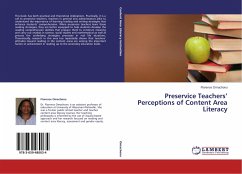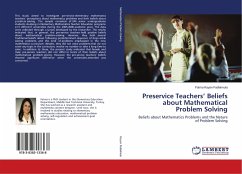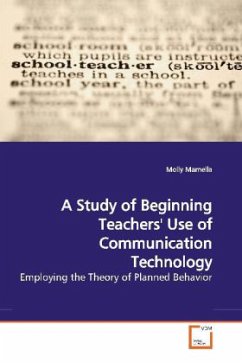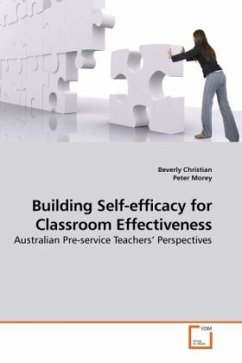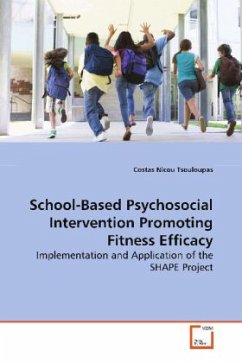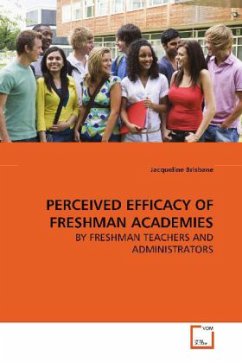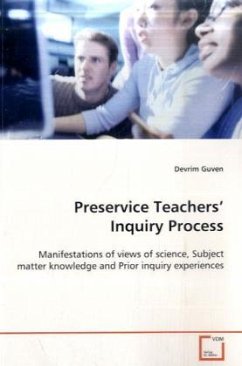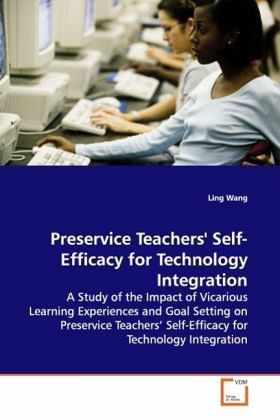
Preservice Teachers' Self-Efficacy for Technology Integration
A Study of the Impact of Vicarious Learning Experiences and Goal Setting on Preservice Teachers Self-Efficacy for Technology Integration
Versandkostenfrei!
Versandfertig in 6-10 Tagen
32,99 €
inkl. MwSt.

PAYBACK Punkte
16 °P sammeln!
This study was designed to explore how vicarious learning experiences and goal setting influence preservice teachers self-efficacy for technology integration. Two hundred and eighty participants were divided into eighteen lab sections, which were assigned into four conditions (3 experimental and 1 control). An instrument measuring self-efficacy for computer technology integration was developed and validated. The instrument was administered as pre- and post-surveys to examine participants self-efficacy beliefs for technology integration. Results showed significant treatment effects for vicariou...
This study was designed to explore how vicarious
learning experiences and goal setting influence
preservice teachers self-efficacy for technology
integration. Two hundred and eighty participants
were divided into eighteen lab sections, which were
assigned into four conditions (3 experimental and 1
control). An instrument measuring self-efficacy for
computer technology integration was developed and
validated. The instrument was administered as pre-
and post-surveys to examine participants self-
efficacy beliefs for technology integration. Results
showed significant treatment effects for vicarious
experiences and goal setting. A significantly more
powerful effect was found when vicarious learning
experiences and goal setting were both present
compared to when only one of the two factors was
present. From the perspective of teacher educators,
the use of vicarious learning experiences and the
incorporation of learning goals may help preservice
teachers develop the confidence they need to become
effective technology users, which in turn can help
meaningful technology use be the norm, rather than
the exception, in our K-12 classrooms.
learning experiences and goal setting influence
preservice teachers self-efficacy for technology
integration. Two hundred and eighty participants
were divided into eighteen lab sections, which were
assigned into four conditions (3 experimental and 1
control). An instrument measuring self-efficacy for
computer technology integration was developed and
validated. The instrument was administered as pre-
and post-surveys to examine participants self-
efficacy beliefs for technology integration. Results
showed significant treatment effects for vicarious
experiences and goal setting. A significantly more
powerful effect was found when vicarious learning
experiences and goal setting were both present
compared to when only one of the two factors was
present. From the perspective of teacher educators,
the use of vicarious learning experiences and the
incorporation of learning goals may help preservice
teachers develop the confidence they need to become
effective technology users, which in turn can help
meaningful technology use be the norm, rather than
the exception, in our K-12 classrooms.



